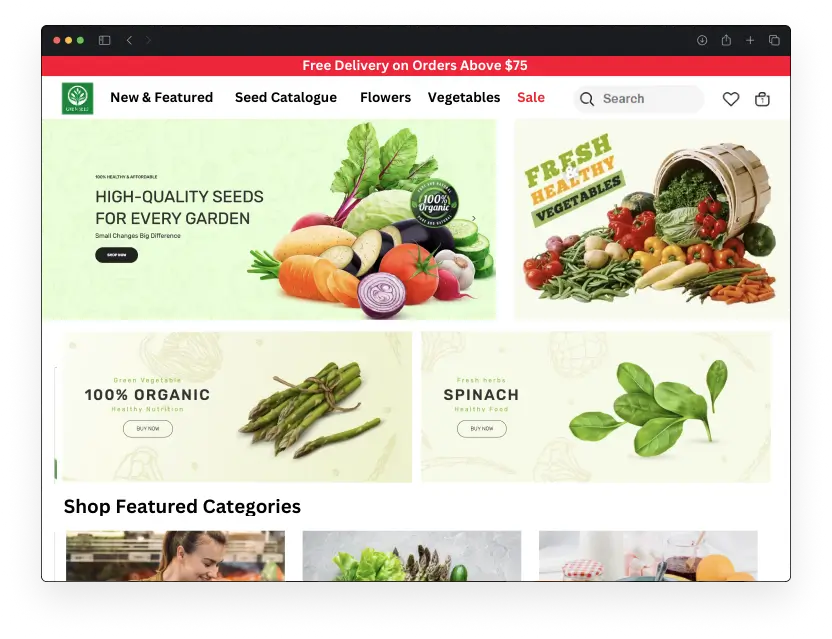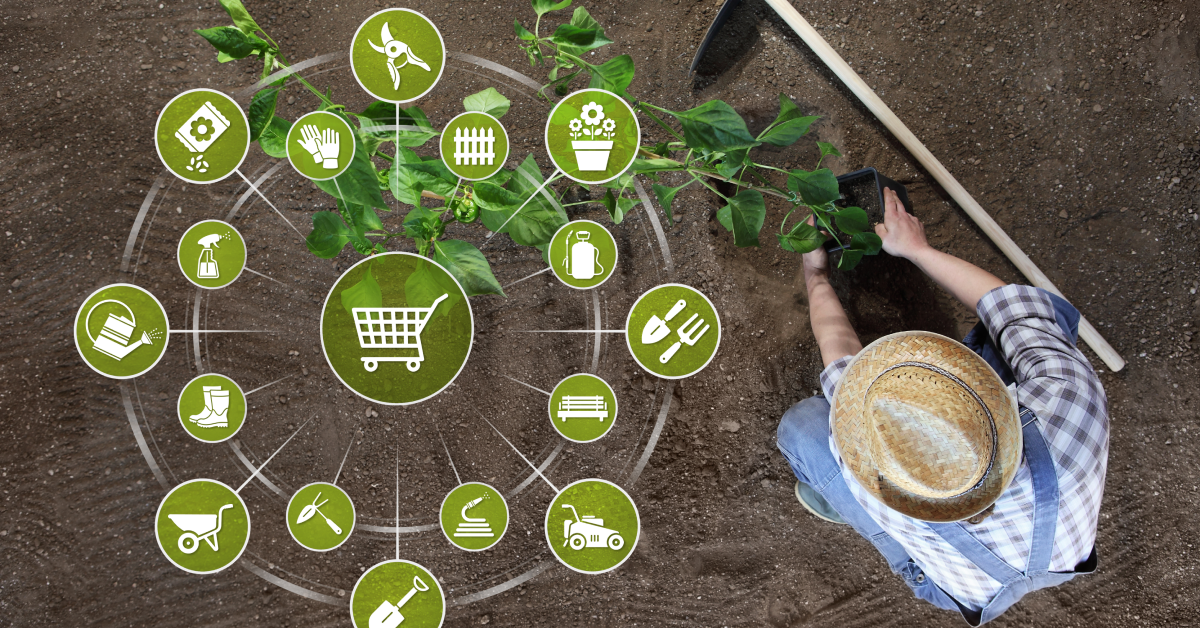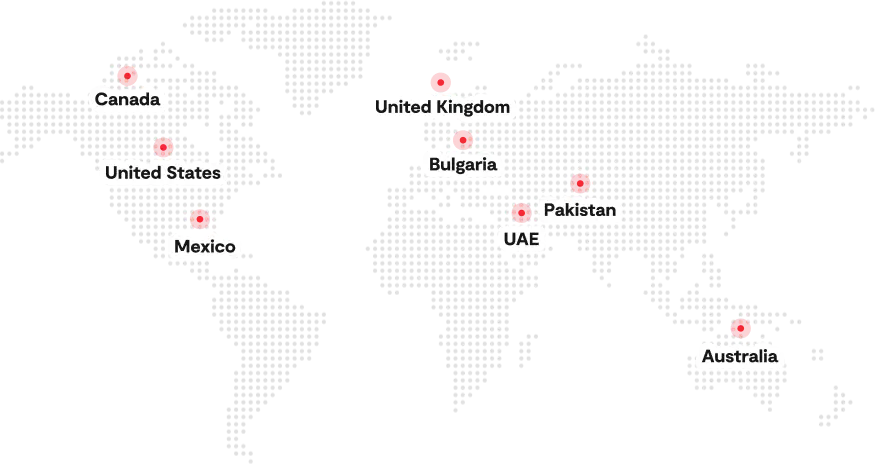The online marketplace for seeds has been booming in recent years, with more customers seeking convenient access to diverse varieties of seeds for gardening, farming, and hobby purposes. Whether you’re a small-scale farmer or a hobbyist with an eye for business, selling seeds online has become a lucrative venture, especially in the current e-commerce-driven landscape.
Now is the perfect time to take advantage of this growing trend by learning how to sell seeds online. Going digital offers several advantages over traditional retail methods, including a broader customer base, the ability to sell around the clock, and lower overhead costs.
This guide will cover everything you need to know about how to sell seeds online, from legal considerations to setting up an online store and growing your operations.
Understanding the Online Seed Market
The demand for seeds has grown exponentially, driven by trends like organic gardening, sustainable farming, and the rise of DIY home projects. With consumers becoming more conscious about where their food comes from and how it’s grown, selling seeds online offers a unique business opportunity.
The convenience of e-commerce and the growing interest in gardening and agriculture have made the online seed market more competitive and profitable.
Let’s explore how to sell seeds online and its current market trends, identify key target audiences and explain how conducting a thorough competitive analysis can give you a strong foundation for success.
Market Trends & Statistics
The rise of organic gardening, sustainable agriculture, and DIY hobbies has increased seed demand. The global seed market is projected to grow steadily, with an increasing share of sales happening online.
According to recent data, the global seed market is valued at over $73 billion, and it is expected to grow at a CAGR of 5.38% to reach USD 99.94 billion by 2030. Online transactions drive a substantial portion of that.
Target Audience Identification
The key to succeeding in the online seed market is understanding your audience. Partnering with a digital PR company can help you understand your audience better and improve your marketing strategies. The target demographics for selling seeds online include:
- Home gardeners looking for unique, organic, or heirloom seeds.
- Urban farmers and community gardeners focused on sustainability.
- Organic farmers are seeking certified seeds.
- Hobbyists are interested in rare or exotic plant varieties.
Competitor’s Analysis
Before launching your seed business, it’s essential to research the competition. Using tools like Etsy keyword tools, Shopify insights, Google Trends, or a Google Trends alternative.
You can identify what products are trending, which seed types are most in demand, and what pricing strategies are used. Advanced sellers now humanize AI product descriptions and keyword research outputs to improve listing quality and increase conversion rates. Analyzing competitors’ listings, product descriptions, and customer reviews will provide valuable insights to help you differentiate your offerings and improve your online visibility.
Legal Considerations
Before selling seeds online, it’s crucial to understand the legal aspects of starting a seed business. Handling the licensing, certification, and packaging regulations ensures compliance and builds customer trust.
Following these rules is key to avoiding costly fines and disruptions, from adhering to USDA guidelines to meeting international shipping requirements.
Let’s explore the most important legal considerations in the process of how to sell seeds online, including licensing, phytosanitary certificates, and packaging standards, so you can confidently launch and grow your seed business while staying compliant.
Licensing and Certification
Selling seeds is regulated, and specific seed certifications may be required depending on the types of seeds you sell and the regions you sell to.
For example, in the United States, the USDA APHIS (Animal and Plant Health Inspection Service) oversees seed certification to ensure quality and compliance with plant health regulations. You’ll need to research local and international requirements to avoid legal complications.
Phytosanitary Certificates
A phytosanitary certificate is often required for international seed shipping to ensure that the seeds meet the health and safety standards of the destination country. Understanding the rules and regulations of the countries you’re shipping to and including proper documentation to avoid shipment delays or rejections is vital.
Packaging and Labeling Requirements
Your seeds must be packaged in approved materials that protect them from contamination and damage during transit. Labeling is equally crucial. Labels should include details about the seed variety, planting instructions, and any required certifications. Many regions have strict labeling regulations, so comply with all local and international standards.
State and International Regulations
Certain states and countries have specific rules regarding seed sales, including restrictions on selling non-native or genetically modified seeds. Research and adhere to these regulations, mainly if you ship seeds across state or national borders.
Setting Up Your Online Seed Store

Creating an online store to sell seeds or any niche dropshipping products, is the foundation of your digital business. Whether you start small or aim for large-scale sales, success hinges on more than choosing the right platform or designing an attractive storefront.
To truly stand out and thrive in the competitive e-commerce landscape, you need the support of a reliable technology partner. Alongside strong technical solutions, digital marketing services in Singapore can help seed businesses build brand awareness, optimize their online presence, and attract the right audience through tailored campaigns.
This is why selecting an experienced partner like Folio3 AgTech is crucial. With the support of the right technology partner, you can quickly go through every step of online store development, from platform selection to product listing optimization. If you’re managing multiple clients or marketplaces. Partnering with a top white label SEO agency can help scale your optimization efforts efficiently across product lines without compromising on quality.
Having the right expertise ensures that your store attracts visitors and converts them into loyal customers. Here’s how working with the right partner can help you set up your online store for success:
- Platform Selection: Choosing the right platform tailored to your specific needs.
- Storefront Design: Building a visually appealing, user-friendly storefront.
- Optimization: Ensuring that every aspect of your store navigation, product pages, and checkout is optimized for conversions.
Here’s how you can set up your online seed store:
Choosing the Right Platform
You must choose the option that best aligns with your business model, budget, and technical expertise. Selecting the right platform is critical for selling seeds online. You have two main options:
- E-commerce Platforms: Shopify, Ecwid, and Shift4Shop are popular platforms for creating a custom online store. They offer various features, including inventory management, SEO tools, and payment processing.
- Marketplaces: Selling on platforms like Etsy, Amazon, and eBay can help you reach a broader audience. However, these platforms have specific customization fees and limitations.
Designing Your Store
Your website’s design is crucial to user experience and conversion rates. A user-friendly interface ensures customers can easily navigate your site and find what they need. Ensure your store is mobile-optimized, as a significant portion of online shopping is done via mobile devices. To achieve this effectively, website development services can help create a seamless, responsive, and visually appealing site that enhances user experience and drives conversions.
Visual appeal is also vital, and you must showcase your seeds using high-quality images and videos. This will make your store more attractive and build trust with potential customers. By investing in web design services, you can create a visually appealing online presence that attracts and retains customers effectively.
Product Listings
To succeed in selling seeds, you need compelling product listings. Start with effective titles and descriptions highlighting key features, like whether the seeds are organic, heirloom, or rare. Use SEO best practices to ensure your listings rank well in search engines by including relevant keywords, tags, and categories. Working with a Montreal SEO agency can also help fine-tune your content strategy and improve your visibility in a competitive market.
Your pricing strategy should be competitive. Offering discounts, bundles, or subscription services for regular customers can help differentiate your business from others.
Shipping and Fulfillment
Once your online seed store is up and running, shipping and fulfillment become critical aspects of maintaining customer satisfaction and ensuring smooth operations.
From selecting the right shipping partner to eco-friendly packaging options, how you handle this part of the business can significantly impact your reputation and profitability.
Let’s uncover how to choose cost-effective shipping solutions, manage international orders, and streamline the packaging process to create an efficient fulfillment system for your seed-selling business:
Choosing a Shipping Partner
Selecting a reliable shipping partner is essential for delivering seeds promptly and in good condition. When deciding, consider factors like shipping costs, delivery times, and tracking options.
Packaging Solutions
Eco-conscious customers appreciate sustainable packaging, so consider using biodegradable materials. Make sure your packaging protects the seeds from damage during transit. Include clear labels and instructions to ensure the seeds reach customers in perfect condition.
Shipping Costs and Calculations
When determining shipping costs, you need to factor them into your pricing strategy. Free shipping for bulk orders or a flat rate can attract customers.
International Shipping
International shipping can be tricky due to customs regulations and varying shipping times. Ensure you know the rules for each country you ship to, and include all necessary documentation, such as phytosanitary certificates, to avoid delays or fines.
Managing Returns and Refunds
A clear return and refund policy can increase customer confidence. To maintain a positive reputation, make it easy for customers to return seeds if dissatisfied and ensure prompt refunds.
Growing Your Seed Business
Once your seed business runs, scaling and expanding your operations is next. Growth isn’t just about increasing sales. It’s about diversifying your product offerings, building customer loyalty, and optimizing your processes to handle higher demand.
Here’s how you can scale your online seed business:
Expanding Product Lines
As your business grows, consider diversifying your seed offerings. Selling rare or specialty seeds, such as heirloom or organic varieties, can attract niche markets. You could also sell complementary products, like seed starter kits, gardening tools, or educational materials about plant care. Additionally, incorporating a service marketplace can provide the opportunity to offer gardening consultations or expert advice, enhancing your product offerings and creating value-added services for your customers.
Customer Retention
Building a loyal customer base is critical to long-term success. Offering loyalty cards, where customers earn rewards for repeat purchases, can help keep them returning and feel more valued. Consider starting a blog or forum where customers can share gardening tips and experiences, creating a sense of community around your brand.
Scaling Your Operations
As your business grows, automation becomes essential. Implementing CRM (customer relationship management) tools, inventory management software, and automated marketing tools can streamline your operations and help you handle increased demand. Also, to track your progress, it’s important to know how to check Google rankings regularly. If you’re ready to expand, consider selling wholesale to nurseries, farms, or garden centers.
Challenges and How to Overcome Them?
Running an online seed business comes with challenges, from managing seasonal demand to handling complex regulations. While these obstacles seem daunting, they’re not impossible with the right strategies.
Let’s address common seed management challenges such as fluctuating demand, supply chain disruptions, and regulatory hurdles. More importantly, we’ll provide practical solutions to help you stay agile and ensure the long-term success of your online seed business:
Seasonal Demand
One of the biggest challenges in the seed business is managing seasonal demand. Using tools like seed management software, you can plan for peak seasons and ensure you’re not overstocked during slower periods.
Supply Chain Issues
Ensuring a steady supply of high-quality seeds is crucial. Work with reliable suppliers and have contingency plans for potential disruptions in your supply chain.
Regulatory Changes
Seed regulations can change frequently, so it’s important to stay current with the latest laws and ensure your business remains compliant.
Why Choose Folio3 AgTech for Your Seed Business?
The right tools and technology are crucial to building a successful online seed business. Folio3 AgTech provides comprehensive seed e-commerce solutions tailored to the seed industry’s unique challenges.
Our team of experts specializes in helping seed businesses thrive by offering tailored e-commerce solutions designed specifically for the seed industry. From building a user-friendly online store to managing complex inventories and ensuring compliance, our team is dedicated to helping you succeed at every step.
Tailored Solutions for the Seed Industry
Folio3 AgTech understands that seed businesses have distinct operational needs, from managing seasonal demand fluctuations to adhering to strict regulatory requirements.
Regarding seed e-commerce, Folio3 AgTech offers expertise that extends beyond generic solutions, focusing specifically on the unique challenges faced by the seed industry.
Our custom seed e-commerce solutions streamline the process of taking your business online, ensuring that your platform is designed to grow alongside your business.
Whether you’re just starting or looking to scale, Folio3 AgTech’s e-commerce capabilities can help you set up a seamless, user-friendly store with robust features such as real-time inventory management, secure payment gateways, and personalized customer recommendations.
Our custom-built platforms are designed for scalability, ensuring that your online seed store continues to deliver an excellent customer experience as your business grows.
With our deep expertise in agricultural and seed businesses, we help you build a fully optimized e-commerce store that offers your customers an intuitive, frictionless shopping experience, ensuring that you stand out in the competitive online market.
Conclusion
How to sell seeds online is a fantastic opportunity for growth in the current digital landscape. From understanding market trends to finding the solutions to legal challenges and scaling your operations, partner with Folio3 AgTech to have all you need to succeed in the online seed business.
FAQs
How Do I Start Selling Seeds Online?
Research the market, choose an e-commerce platform, comply with regulations, and set up your online store.
Do I Need a License to Sell Seeds Online?
Yes, most regions require certification, and international shipping often requires a phytosanitary certificate.
How Can I Differentiate My Seed Business from Competitors?
Focus on niche markets like organic or rare seeds and offer superior customer service and sustainable packaging.
Can I Sell Seeds Internationally?
Yes, but you must follow each country’s regulations and include necessary documentation for customs.





